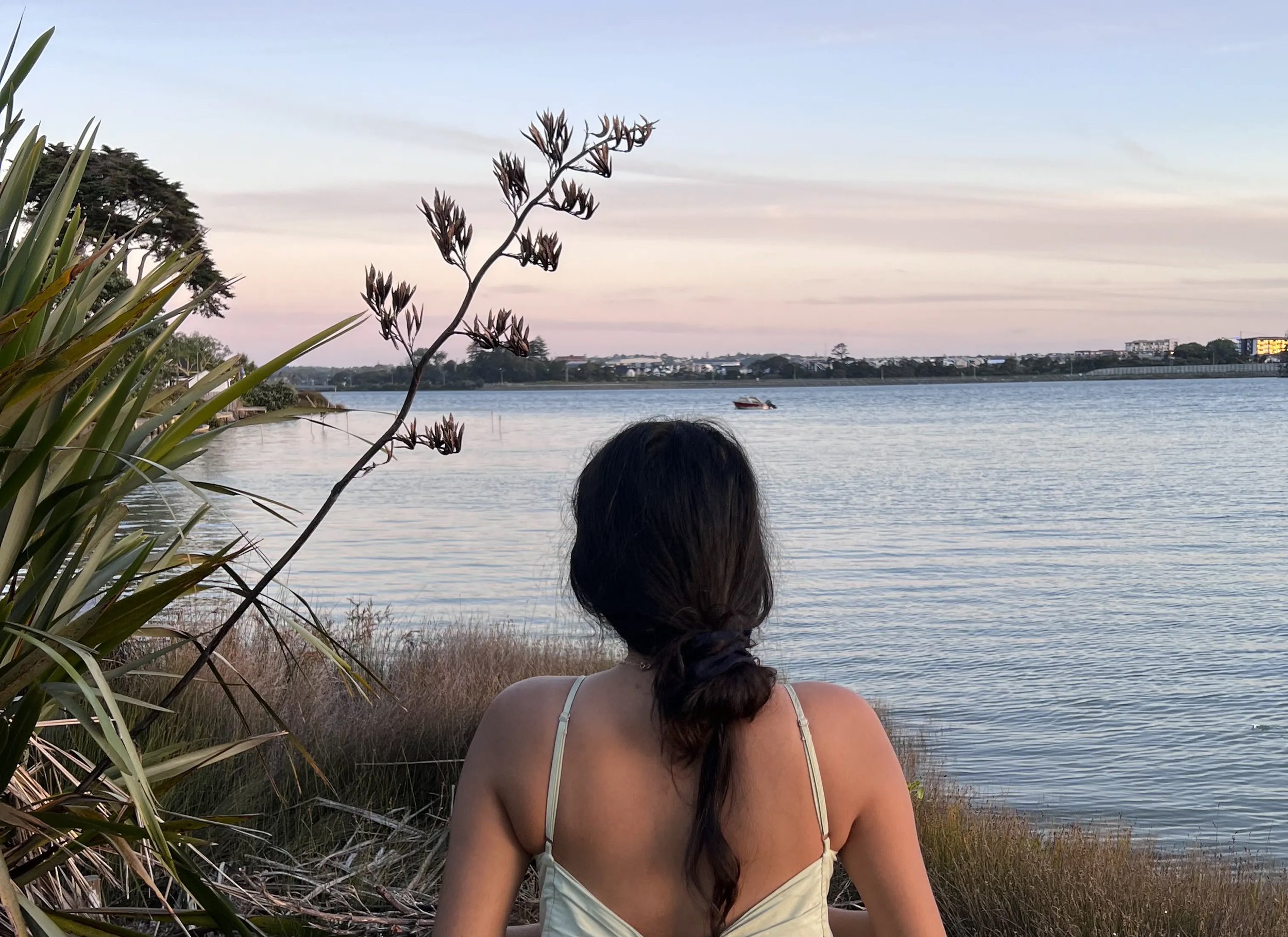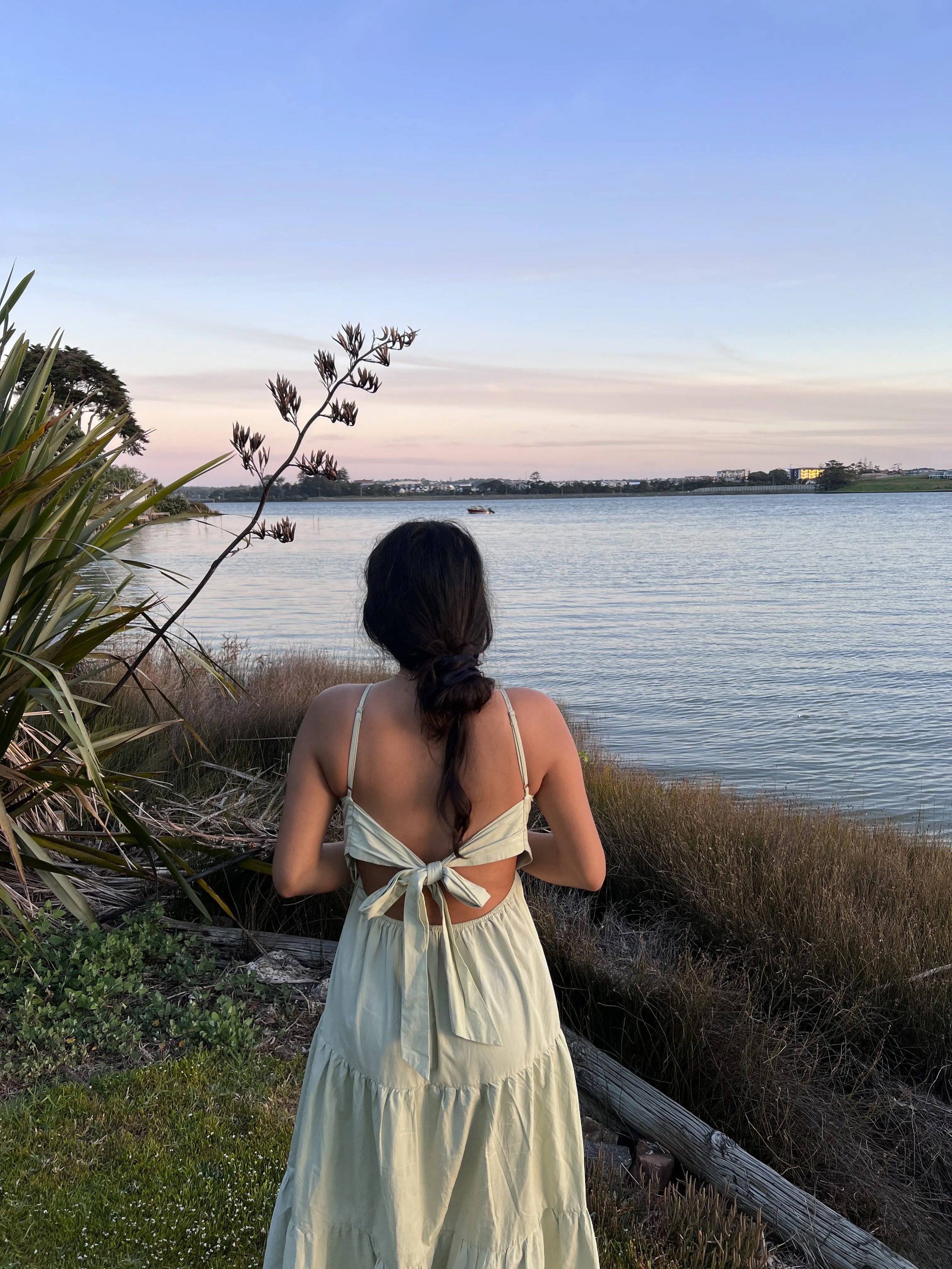ADDRESSING ECO-ANXIETY: WHERE TO START
If the overwhelming, exhausting, and traumatizing feeling of eco-anxiety is haunting you every day, you’re not alone. The climate crisis has rapidly become a leading cause of anxiety for an entire generation, impacting the daily lives of 45% of young people ages 16-25, with 3/4 of them saying that “the future is frightening”. This is the generation that has grown up not only with the ringing of alarm bells, but the very real, very scary effects of the climate crisis at their doorsteps.
Young people everywhere are at the forefront of the climate justice movement because for many of them the survival of their cultures, their homes, and their people are at stake. This immense pressure, mixed with the varying health impacts of unsafe living environments and the overall growing sense of climate doom has resulted in the rise of climate related mental health symptoms. These can manifest in the forms of anger, fear, burnout, and more, all of which are grouped under the term eco-anxiety.
Similar to other forms of anxiety, eco-anxiety is best addressed through a combination of professional counseling and individual intervention therapy. However, because of its more recent emergence as a psychological phenomenon, finding an accessible and climate-aware mental health professional that is trained and prepared for treating these symptoms is difficult. This rings especially true for BIPOC youth with intersecting identities such as gender or sexualtiy that need access to professionals that understand the intersection of eco-anxiety with wider systemic issues.
Despite the lack of resources and limited research, climate justice advocates are working alongside mental health researchers to create helpful frameworks for individuals struggling with these symptoms. Current mainstream interventions include the strengthening of one’s inner resilience, finding emotional support in social connections, taking action, and connecting with nature. These major themes have emerged out of new research and are typically paired with therapy, but they have been adapted here to help individuals begin to practice aspects of these interventions in intentional and meaningful ways without access to professional help.
STRENGTHENING INNER RESILIENCE
Building and strengthening personal resilience begins with an acknowledgment of the internal emotions one may associate with certain triggers. This first requires identifying not only the symptoms but also their roots, and second reframing those reactions as the normal and complex emotions that they are. Doing this internal work deepens one’s understanding of their positionality in the context of the climate crisis, and provides insights as to how they can begin mitigating their symptoms on a personal level.
JOURNAL PROMPTS:
Begin by describing your symptoms. Do you feel fear, anger, helplessness, or any other emotions?
Identify the root of these emotions. Are they triggered by your thoughts about the future, or maybe the past? Do they revolve around you, your community, or your immediate environment?
Contextualise the situation. When you think about a crisis from a different time, do you believe these emotions would have been valid and normal then? Do you think the same applies to the climate crisis?
Create a resolution. How are you personally positioned in this crisis? When thinking about your identity and values, do you see opportunities to find hope in thinking about the future?
SUPPORT IN SOCIAL CONNECTIONS
Much like it’s root cause, the collective trauma of eco-anxiety knows no borders. It is experienced by a majority of young people, and yet there is very little conversation about it. In fact, where these conversations should exist, there is instead a choir of climate doom being voiced throughout the entire movement. Finding support in social connections and sharing space with dedicated groups is a key way to address eco-anxiety, and it begins with finding the right community.
JOURNAL PROMPTS:
Identify your community. What immediate communities do you exist in, and what role do you take up in them?
Connect on your shared identities/values. Is there a particular group of people that you can access that share your experiences with eco-anxiety? How do you connect with them beyond this shared experience? Perhaps through your values or identities?
TAKING ACTION
Feeling guilty over personal actions can be an overwhelming symptom of eco-anxiety, and it’s important to know that no singular person is responsible for this crisis. Taking action on an individual or collective level is an impactful way to address these symptoms, but only if done intentionally and with realistic goals.
JOURNAL PROMPTS:
Set your intentions. What changes do you feel you need to make in your life to address your symptoms? What are your intentions behind these changes, are they for your personal well being or geared towards climate action?
Plan your action. What actions are you best positioned to take on a personal and/or collective level, are they aligned with your skills and capacity? Do you need others to work with you on this action, if so, how will they be of support?
Pace yourself. Are you being realistic with your expectations? Check back in with yourself over the lifetime of this action and re-evaluate if needed.
CONNECTING WITH NATURE
Spending time outdoors is known to reduce other forms of anxiety, and unsurprisingly is also key to addressing eco-anxiety. Connecting with nature, even if it is in urban areas, is important for reflection, inspiration, and grounding individuals in their relationships with the environment. Taking time to detach from anxiety inducing technologies and developing a nature based practice such as a daily walk can have immediate results.
JOURNAL PROMPTS:
Develop a practice. How can you make changes in your life to allow for time in nature every day? What structures do you need to build for yourself to stay committed to this goal?
Reflect on your relationship. What is your relationship with nature? How do you feel when you spend time outside, detached from technology and immersed in the experience of being in nature?
These themes and prompts serve as a starting point for those struggling with eco-anxiety. They are meant to be built on, and can be answered individually or within a group. Further resources can be found at the Climate-Aware Therapists Directory and Circularity Community.
KIANA KAZEMI
Is an environmental justice advocate and intersectional engineer passionate about democratizing access to environmental education and justice-based action. She is a writer, community organizer, and entrepreneur. She is the founder of Circularity, a platform and soon-to-be app that is dedicated to tackling eco-anxiety, as well as the Head of Community Operations at Intersectional Environmentalist, where she develops, implements, and directs programs such as IE School. Follow her work @kiana.kaz





